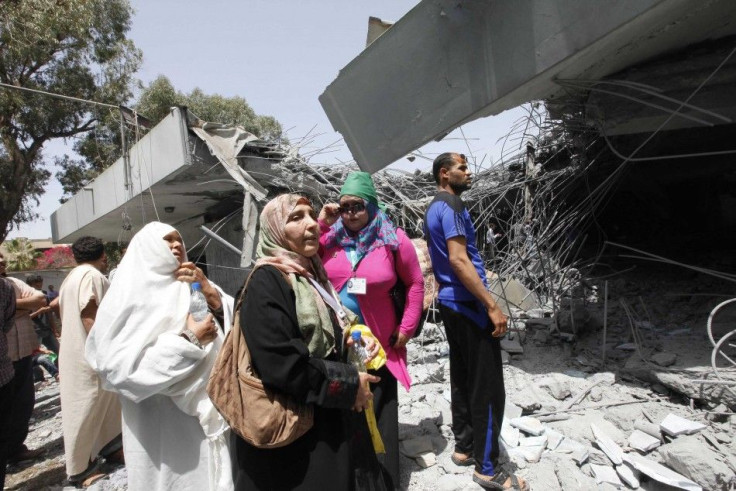Libya claims NATO air strikes have killed more than 700 civilians

The government of Libya claim that NATO air strikes on the country have killed more than 700 civilians and injured more than 4000 since the campaign commenced in March.
However, Tripoli spokesman Moussa Ibrahim did not provide any evidence to back up his numbers.
Since March 19, and up to May 26, there have been 718 martyrs among civilians and 4,067 wounded -- 433 of them seriously, Ibrahim said.
He added that these data did not include army deaths.
Foreign reporters in Libya have not seen any evidence of civilian casualties.
NATO has repeatedly denied that its missile strikes are designed to protect Libyan civilians from Moammar Gaddafi’s military forces, not to kill them.
Separately, Ibrahim denied reports that Jacob Zuma, the president of South Africa who met with Gaddafi yesterday, was seeking an exit strategy for the Libyan leader.
If Gaddafi goes, the security valve will disappear. His departure would be the worst case scenario for Libya, Ibrahim told reporters.
Upon returning to Pretoria, South Africa, Zuma’s office released the following statement: Col Gaddafi called for an end to the bombings to enable a Libyan dialogue. He emphasized that he was not prepared to leave his country, despite the difficulties.
Meanwhile, NATO is continuing its strikes on Libya, and said they will not cease until at least late September or when Gaddafi steps down from power.
“This decision sends a clear message to the Gaddafi regime,” said Anders Fogh Rasmussen, the NATO secretary-general.
We are determined to continue our operation to protect the people of Libya. We will keep up the pressure to see it through, Rasmussen added after the North Atlantic Council, the decision-making body of the 28-nation alliance, agreed to extend the mission.
Rasmussen believes Gaddafi’s days are numbered.
The question is not if Gaddafi will go but when ... It could take some time yet but it could also happen tomorrow, he added.
The Italian Foreign Minister Franco Frattini, who is visiting with Libyan rebel groups in the eastern part of the country, told a news conference: He [Gaddafi] must leave office, he must leave the country. His aides have left, he has no international support, the G8 leaders reject him, he must go.
© Copyright IBTimes 2024. All rights reserved.











